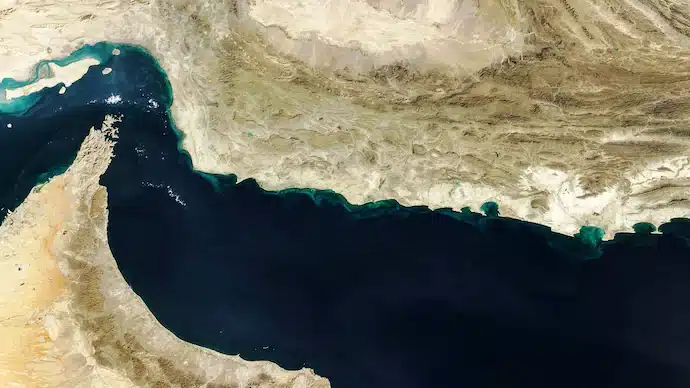Impact of Iran-Israel Conflict on Strait of Hormuz: Implications for Companies and Sectors

Will the ongoing tensions between Iran and Israel disrupt oil supplies for India? In light of the escalating conflict, Indian refiners are proactively seeking alternative energy sources, particularly from West African nations, to safeguard fuel supplies. This strategic move comes as concerns grow over the potential blockage of the Strait of Hormuz, a vital maritime route for global energy transport. Senior officials from India’s oil ministry and industry leaders are currently assessing scenarios and developing contingency plans to address possible supply disruptions and price fluctuations.
The Importance of the Strait of Hormuz
The Strait of Hormuz is a critical waterway for global energy transportation, spanning just 29 nautical miles at its narrowest point. It is responsible for the transit of approximately one-third of the world’s maritime oil shipments and 20% of liquefied natural gas (LNG). The U.S. Energy Information Administration (EIA) has labeled it as the “world’s most important oil chokepoint.” In 2023, around 20 million barrels per day of crude oil and refined products passed through this strait, accounting for nearly 30% of global oil trade. A significant portion of this volume, approximately 70%, is directed towards Asian markets, with China, India, and Japan being the primary recipients. While alternative pipeline networks exist, their capacity is limited. The International Energy Agency (IEA) estimates that only 4.2 million barrels per day can be redirected through land-based routes, which is merely a fraction of the usual daily volume that flows through the Strait of Hormuz.
Potential Impact on India’s Energy Supply
A closure of the Strait of Hormuz could severely impact India’s energy supply, affecting 40% of its crude oil imports and 54% of its LNG supplies. Currently, the strait facilitates about 30% of global oil trade and 20% of LNG shipments. India relies heavily on imports for its crude oil needs, with 90% of its consumption sourced externally. The Gulf nations account for over 40% of these imports, while Russian supplies make up approximately 35%. In recent months, imports from Africa have decreased significantly. For LNG, India’s procurement from the Gulf region is projected at 54% for 2024, with Qatar and the UAE being the primary suppliers. Any disruption in Qatari exports could lead to a spike in spot LNG prices, as 60% of India’s long-term LNG agreements are tied to crude oil rates. Despite these risks, industry executives express skepticism about the likelihood of Iran blocking the strait, citing historical precedents that suggest such actions would provoke significant economic repercussions.
Current Strategies and Contingency Plans
In response to the potential threat posed by the Iran-Israel conflict, Indian refiners are maintaining their regular purchasing patterns without resorting to panic buying. The oil ministry has confirmed that India has sufficient crude oil and petroleum product storage facilities to meet 74 days of domestic consumption, with strategic reserves accounting for 9.5 days of this capacity. However, the country lacks gas storage facilities, and the government has not disclosed specific inventory levels for oil and gas. Industry executives indicate that the overall storage capability includes stocks at refineries, pipeline networks, and product storage terminals. While contingency plans are in place, experts warn that a closure of the Strait of Hormuz would reduce the global supply of oil and gas, leading to inevitable price increases. The intricacies of international trade mean that if India seeks additional supplies from West Africa, other importers are likely to follow suit, further complicating the situation.
Observer Voice is the one stop site for National, International news, Sports, Editor’s Choice, Art/culture contents, Quotes and much more. We also cover historical contents. Historical contents includes World History, Indian History, and what happened today. The website also covers Entertainment across the India and World.
Follow Us on Twitter, Instagram, Facebook, & LinkedIn

